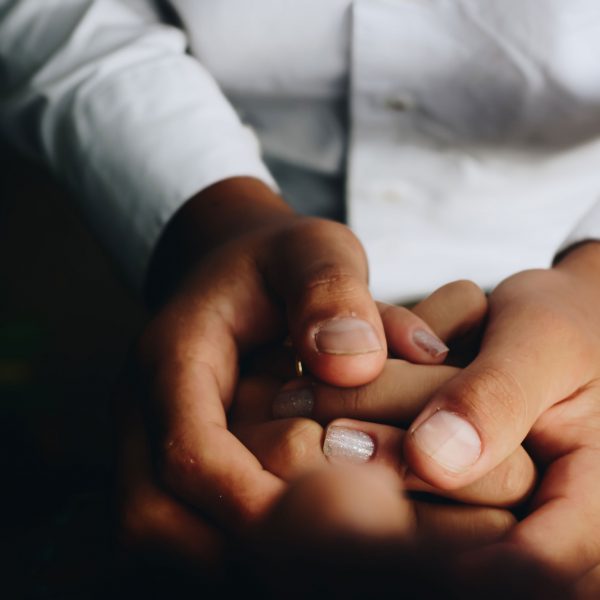For three year olds, morality is not just about the self

Children as young as three years old are willing to punish others for their moral transgressions, even when it comes at a personal cost, researchers from New York University have found. Their work adds to a growing body of evidence pointing to the capacity of the human race to distinguish between right and wrong at a very young age.
Lead researcher, Daniel Yudkin,said the results highlight “a distinctly human aspect of moral behaviour”, noting that “morality is about more than just doing good oneself – it is also about encouraging good behaviour in others”.
The premise of the study, which was recently published in the Journal of Experimental Psychology, was to better understand a uniquely human trait: our willingness to punish, at personal cost, ‘bad actors’ who haven’t harmed us directly.
This costly third-party punishment behaviour, Mr Yudkin explained, was interesting to researchers because it is believed to underlie people’s conception of justice and morality. “Specifically, it relates to justice because it involves people making sure others are acting fairly, even if their behaviour doesn’t impact them.”
The researchers focused on young children to better understand this behaviour in the hopes of gaining greater insight to third party punishment behaviours by better understanding how humans think about punishment early in life, and if this understanding could help shed light on the underlying psychological processes driving this behaviour.
To learn more, Mr Yudkin and his colleagues deployed a naturalistic experiment – one aimed at capturing the reality of children’s everyday lives. More than 200 children, aged between three and six years of age were recruited from the Children’s Museum of Manhattan and brought one at a time into a classroom with a large red slide in the corner.
The children were given the chance to try out the slide and all of them reported enjoying doing so. Next, they were shown a video of a little girl (Stacey) tearing up someone else’s drawing, then were told that Stacey planned to come back into the room later in the day to play on the slide.
The children were then given a double-sided sign, with one side reading ‘open’ and the other ‘closed’. They were told that if they put the ‘open’ sign on the slide, then they could go down the slide and Stacey could too. If the ;closed’ sign was used, then they could stop Stacey from going down, but then they couldn’t go down either. In other words, punishing Stacey came at a cost to themselves – they would be denied the chance to do something they previously said they enjoyed (all children confirmed their understanding of the significance of their choice to the researchers).
Almost 50 per cent of the children across all age groups chose to close the slide and punish Stacey for her actions, even when it meant that they too missed out on enjoying the slide. Rates of punishment increased with age: children aged five and six punished at about three times the rate of those aged three and four.
In a follow-up experiment, the researchers wanted to test what makes children more or less likely to punish. To do this, they randomly assigned participants to different conditions. Under one, some learned that Stacey was a member of the Manhattan Children’s Museum, while others learned she was a member of the Boston Museum (thereby manipulating Stacey’s ‘group membership’).
In another, some children wore a sheriff’s badge while others did not (thereby manipulating punishers’ sense of ‘authority’). They then examined whether rates of punishment differed according to which condition participants had been assigned.
The results showed that group membership and authority did in fact affect children’s likelihood of punishment, but in an unexpected way.
Typically, these types of social experiments show that people treat those out of the group – in this instance – children from the Boston Museum – more harshly than in group members. Whilst the younger children in the cohort punished Stacey for being a Boston group member at more than twice the rate of those who believed she was from Manhattan, this did not occur in the older groups, nor when children were wearing a sheriff’s badge.
When children were wearing the badge, they demonstrated precisely the opposite pattern, punishing Stacey more when she was a member of the Children’s Museum than when she was a member of the Boston Museum. The researchers termed this effect ‘in-group policing’ and concluded the following: people become more committed to ensuring that members of their own communities are behaving well when they feel a sense of responsibility.
More generally, the researchers note that we frequently encounter examples of those who perform third-party punishment – from those who risk arrest at a protest over a matter that doesn’t directly affect them to others who stand up to protect a stranger being harassed on the subway.
The reasons behind the acquisition of this tendency is unclear. Researchers suggest that one possibility is reputational: that people do it merely to look good to others. Another possibility is that it is innate: that people are intrinsically willing to uphold moral rules.
“By showing that even some children as young three years of age do enact costly punishment, we provide evidence that reputation isn’t the only thing driving this behaviour,” Mr Yudkin noted.
Past research suggests that children at this age don’t take into account their reputations when making decisions that affect themselves or others. “Of course, we cannot tell for sure whether this behaviour is innate or learned in the first few years of life,” Mr Yudkin concludes. “But it does add to growing evidence that, at a very young age, humans are predisposed to do good themselves and encourage good behaviour in others.”
The full paper Young Children Police Group Members at Personal Cost can be accessed here.
Popular

Quality
Practice
Provider
Research
Workforce
Honouring the quiet magic of early childhood
2025-07-11 09:15:00
by Fiona Alston

Policy
Practice
Provider
Quality
Workforce
Minister Jess Walsh signals urgent action on safety and oversight in early learning
2025-07-11 08:45:01
by Fiona Alston

Workforce
Policy
Quality
Practice
Provider
Research
The silent oath: Why child protection is personal for every educator
2025-07-17 09:00:31
by Fiona Alston











